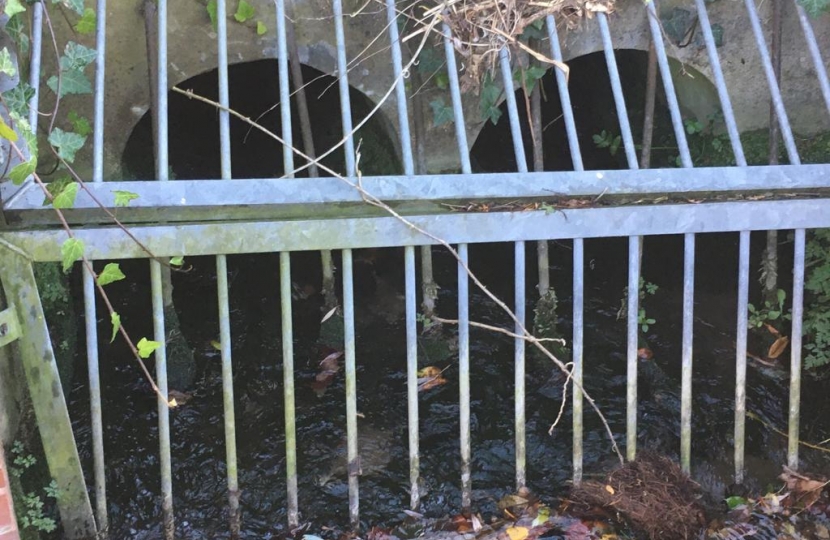
No one wants to have raw sewage discharged into our rivers and other water courses and I fully support work to eliminate this. I am therefore pleased that within the Environment Bill we have some important obligations set on water companies to work towards this. However if we were to regulate to stop this overnight we would have an increase in raw sewage flooding homes and streets, a very real problem for some people and one which I have already raised with our water company at senior levels for urgent action. This is because of the age and condition of the sewers and the cost of fixing this problem could be as high as £660 billion.
In debate on the Environment Bill in the House an amendment was put forward which purported to deal with the discharge of raw sewage by water companies into rivers and other water sources. However what was asked for was unrealistic and would have resulted in an increase in the incidents in people’s homes. To support this would have been unacceptable. As mentioned above, we have an old sewerage systems which means that the complete elimination of discharges from storm overflows will be very difficult. I have been advised that initial assessments suggest total elimination could cost up to £600 billion. This process would involve the complete separation of sewerage systems, leading to potentially significant disruption for homes, businesses and infrastructure across the country. With such amounts, customer bill increases and trade-offs against other water industry priorities would be unavoidable, and we need to understand what such trade-offs might be.
John said: “The accusation that I voted to allow water companies to pump raw sewage into rivers is far from the truth. It would be just as fair to say that those supporting the amendment voted to pump raw sewage into your home given that resolving the problem by their half-baked proposal would require rebuilding the sewage system and could cost up to £600 billion and take many years. What I voted for is set out below. In any debate I listen carefully to the speech made by the relevant Minister which sets out the detail and implications. In this case, the Minister set out very clearly what we are doing in relation to sewage and what we have already put into the Bill by way of amendments in the House of Lords.”
The Environment Bill now includes:
- a new duty on Government to produce a statutory plan to reduce discharges from storm overflows and their adverse impact, and report to Parliament on progress.
- a requirement for government to produce a report setting out the actions that would be needed to eliminate discharges from storm overflows in England, and the costs and benefits of those actions. Both publications are required before 1 September 2022.
- a new duty directly on water companies and the Environment Agency to publish data on storm overflow operation on an annual basis.
- a new duty directly on water companies to publish near real time information on the operation of storm overflows.
- a new duty directly on water companies to monitor the water quality upstream and downstream of storm overflows and sewage disposal works.
- a new duty directly on water companies to produce comprehensive statutory Drainage and Sewerage Management Plans, setting out how they will manage and develop their drainage and sewerage system over a minimum 25-year planning horizon, including how storm overflows will be addressed through these plans.
- a power of direction for the government to direct water companies in relation to the actions in these Drainage and Sewerage Management Plans. We will not hesitate to use this power of direction if plans are not good enough.
This significant package will work hand in hand with the action we are taking outside the Bill:
- Between 2020 and 2025, water companies will invest £7.1bn on environmental improvements in England. Of this, £3.1 billion will be invested in in storm overflow improvements specifically.
- We have also made our expectations crystal clear in our draft Strategic Policy Statement to Ofwat where, for the first time, the Government will tell the industry’s economic regulator that we expect water companies to take steps to “significantly reduce... storm overflows”, and that we expect funding to be approved for them to do so.
- In August 2020 we established the Storm Overflows Task Force to bring together key stakeholders from the water industry, environmental NGOs, regulators, and Government in order to drive progress in reducing sewage discharges. The Task Force has agreed a long-term goal to eliminate harm from storm overflows.
- We have committed to reviewing the case for implementing Schedule 3 to the Flood and Water Management Act 2010 in England, which would set mandatory build standards for sustainable drainage schemes on new developments, and which many have called for. This action has the potential to markedly reduce quantities of water unnecessarily entering the sewerage system
This will deliver real reductions in the harm caused by storm overflows. There should be no doubt about the government’s ambition and determination in this area - a significant reduction in discharges from storm overflows.

